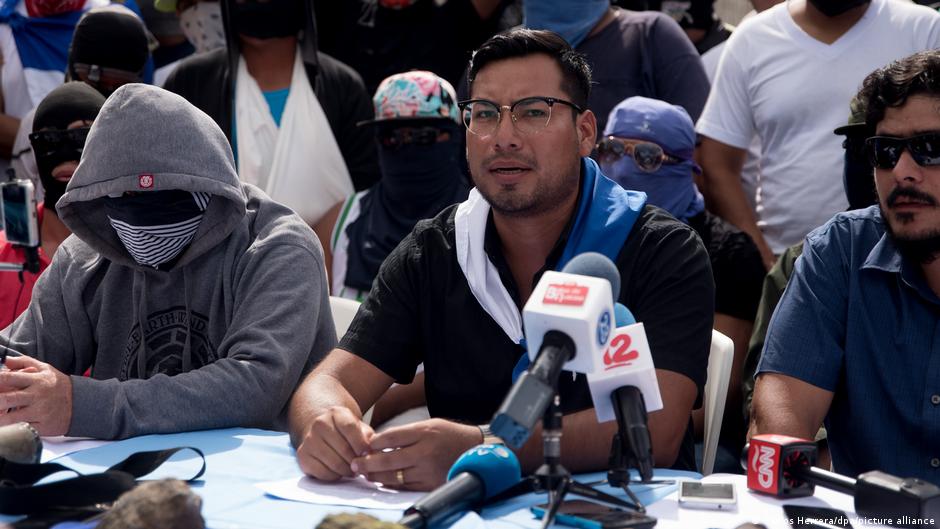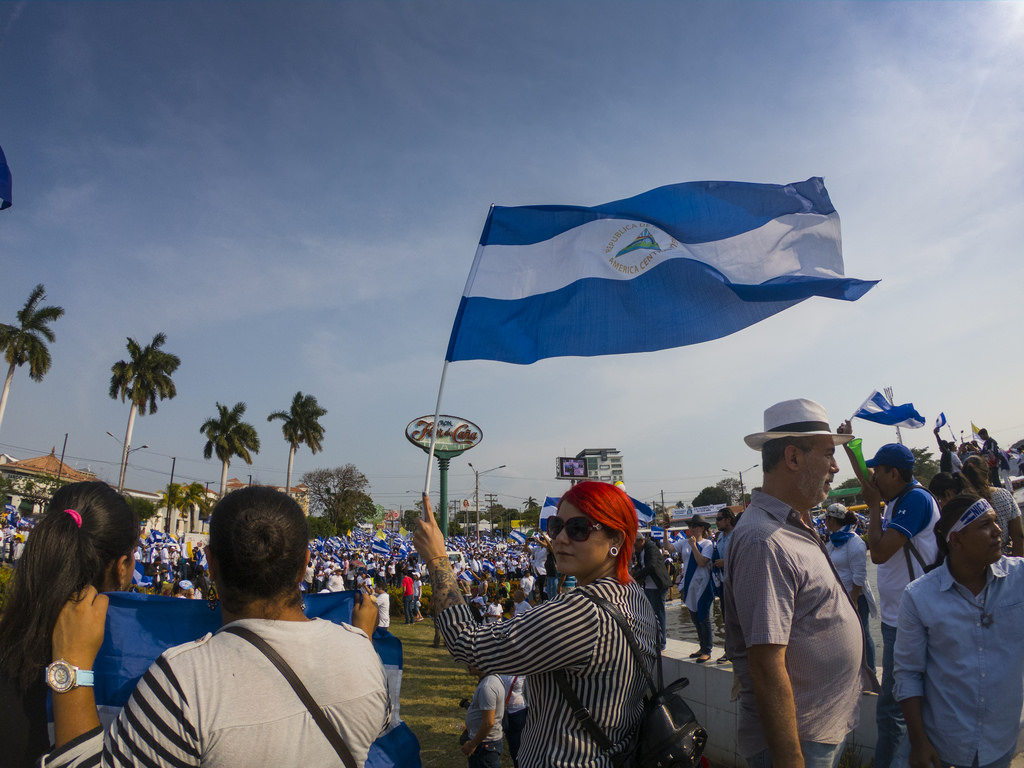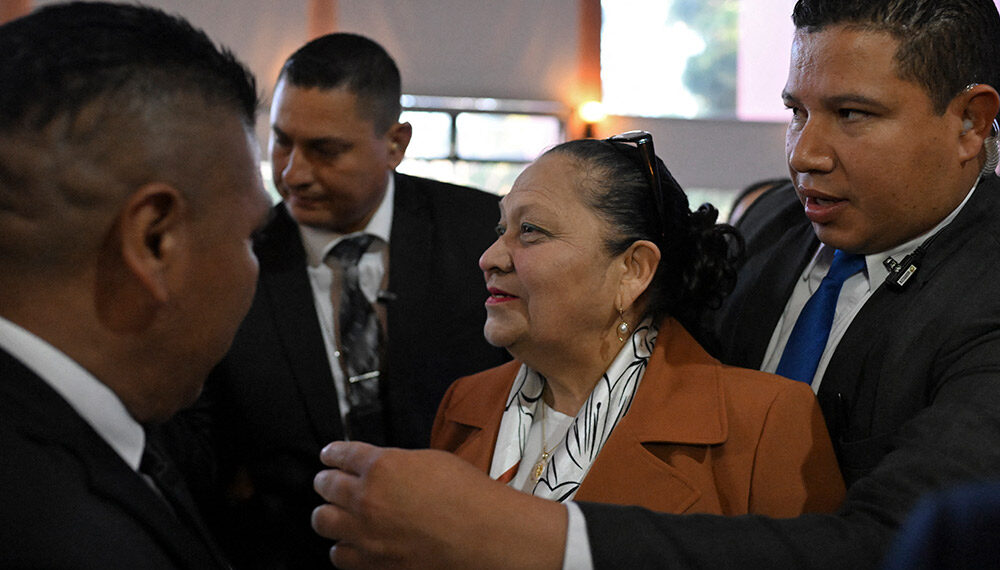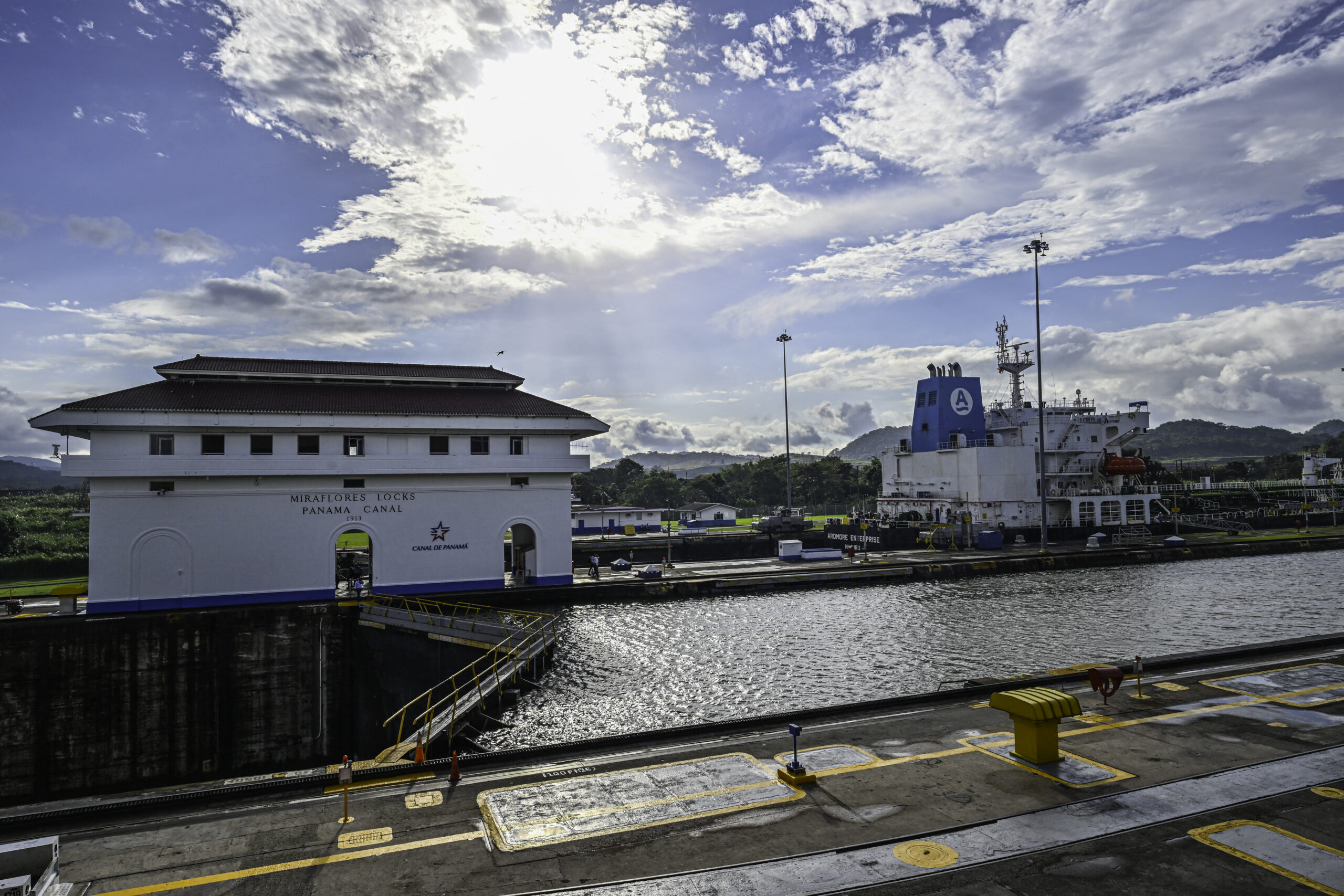Central America
Nicaraguan opposition leader Suazo sentenced to 10 years in jail: group

AFP
Nicaraguan opposition leader Yubrank Suazo, who took part in protests against President Daniel Ortega’s government in 2018, was sentenced on Wednesday to 10 years in prison, his group said.
A court in the capital Managua sentenced Suazo to five years in jail for “conspiring to undermine national integrity” and another five years for spreading fake news, according to the Civic Alliance for Justice and Democracy, where he served as a director.
Suazo was “prosecuted and sentenced without having committed any crime, nor having any link with criminal structures,” the group said in a statement.
The 31-year-old hails from the southern city of Masaya, which was shaken by large anti-government protests in 2018.
The city had declared itself in rebellion against ex-guerrilla Ortega’s government as part of massive nationwide street protests.
The government’s crackdown on the demonstrations left 355 dead.
Suazo was detained in 2018 but released in 2019 as part of an agreement with the government mediated by the Catholic Church, which also saw several hundred other opposition figures freed.
But in May Suazo was arrested again and put on trial.
A Nicaraguan NGO campaigning for political prisoners says about 190 opposition figures have been detained.
About 45 opposition figures, including seven presidential hopefuls, were arrested last year ahead of elections in which Ortega benefitted from the lack of credible opposition to win a fourth successive term.
They were sentenced to up to 13 years in prison for allegedly undermining national security.
Ortega accuses his opponents of trying to oust him with help from the United States, which has hit him and his inner circle with sanctions.
Central America
Nicaragua Held Responsible for Harassment of Opposition Prosecutor and His Family

The Inter-American Court of Human Rights on Wednesday found Nicaragua responsible for threats, harassment, and attacks suffered by opposition election monitor Jaime Antonio Chavarría and his family after he reported irregularities during the July 27, 2008 municipal elections.
Chavarría was serving as an electoral verification prosecutor for the opposition Constitutional Liberal Party at a polling station in Managua on election day. He filed a formal objection with local authorities, complaining that the polling center had closed before the scheduled time while voters were still waiting to be verified.
According to the ruling, Chavarría and several relatives present at the site were subjected to insults and threats by a representative of the ruling Sandinista National Liberation Front (FSLN). As they were leaving the area, they were intercepted and attacked by a large group of individuals allegedly incited by local Sandinista leaders.
“The events were witnessed by police officers who refrained from intervening. Mr. Chavarría Morales and his relatives, who suffered various injuries, managed to escape in their vehicle, which the aggressors attempted to set on fire,” the court detailed.
Chavarría reported the incident to the National Police, but the case was ultimately shelved in May 2016. Acts of harassment and intimidation continued over time.
The court concluded that the State bore responsibility for the threats, harassment, and subsequent attacks following July 2008, citing the participation or acquiescence of state agents in some of the incidents, as well as the failure to adopt protection and investigative measures.
In its judgment, the court determined that Nicaragua violated Chavarría’s rights to personal integrity, freedom of thought and expression, political rights, equality before the law, and the right to defend human rights.
The ruling also established state responsibility for violations affecting the personal integrity, judicial guarantees, judicial protection, and family protection rights of Chavarría and for the harm caused to the life plans of his children: Cindy Alicia Chavarría Alonso, Jeffer Joaquín Chavarría Alonso, and Jaime Antonio Chavarría Alonso.
Central America
Guatemala’s Attorney General Fails in Bid for Top Court Seat Amid Corruption Allegations

The Attorney General of Guatemala, Consuelo Porras, failed on Tuesday in her bid to join the country’s highest constitutional court, a position that would have granted her immunity from corruption allegations for which she has been sanctioned by the United States and the European Union.
Porras, whose term as attorney general ends in May, did not receive a single vote in the final round of voting to become a magistrate of the Corte de Constitucionalidad, whose rulings are final and cannot be appealed.
The Supreme Court reelected Dina Ochoa and Claudia Paniagua as its representatives to the Constitutional Court.
Ochoa is considered close to former presidents Jimmy Morales (2016–2020) and Alejandro Giammattei (2020–2024), both accused of corruption. Paniagua, like Porras, has been sanctioned by the United States.
Washington and the European Union have labeled Porras as “corrupt” and “undemocratic,” accusing her of attempting to block the inauguration of Social Democratic President Bernardo Arévalo two years ago.
In addition, the 72-year-old attorney general—who is seeking a third term—has been accused of forcing anti-corruption officials, journalists, and social leaders into exile. She denies the allegations and claims they are part of a political persecution campaign.
Porras’ chances of remaining in office, a position she has held since 2018, are considered slim, as President Arévalo is responsible for appointing the next attorney general.
Central America
Panama Canal Monitoring Trade as Middle East Conflict Disrupts Shipping

The Panama Canal Authority (ACP) said Monday it is closely monitoring global maritime trade developments following the conflict triggered by joint U.S. and Israeli strikes against Iran.
However, the ACP described it as “premature” to predict potential consequences for vessel traffic through the interoceanic waterway, which handles roughly 5% of global maritime trade.
“The Panama Canal continuously monitors the evolution of international maritime trade and the dynamics that may influence its flows,” the authority said in a statement. The canal’s main users are the United States and China, connecting primarily the U.S. East Coast with Asia, including South Korea and Japan.
The ACP emphasized that the canal “continues to operate safely, efficiently, and reliably,” providing uninterrupted service to the global maritime community.
Global Shipping Disruptions
The U.S.-Israeli military operation against Iran and Tehran’s retaliatory actions have disrupted global maritime traffic, particularly oil tanker routes.
Shipping giants Maersk and CMA CGM have suspended transits through the Strait of Hormuz as well as crossings via the Suez Canal, the key route linking the Mediterranean Sea and the Red Sea.
As a result, cargo vessels are now rerouting around Africa to reach Europe from the Middle East and Asia — a detour that adds several thousand kilometers and several days to voyages.
-

 International3 days ago
International3 days agoIran Reports 201 Dead, 747 Injured After U.S. and Israeli Strikes
-

 International2 days ago
International2 days agoBrazil’s Supreme Court Rejects Bolsonaro’s Bid for House Arrest
-

 International3 days ago
International3 days agoPope Leo XIV Urges End to ‘Spiral of Violence’ in Middle East
-

 International4 days ago
International4 days agoSecurity Council to Hold Emergency Meeting on Middle East Crisis
-

 Sin categoría4 days ago
Sin categoría4 days agoTrump: ‘We Think It’s True’ Amid Claims Iran’s Supreme Leader Was Killed
-

 International2 days ago
International2 days agoAnti-ICE Billboard Campaign Targets Immigration Spending in 31 U.S. Cities
-

 International1 day ago
International1 day agoSpain’s Prime Minister to Address Nation Amid Trump’s Trade Threats
-

 International2 days ago
International2 days agoTrump Warns of ‘Major Wave’ of Attacks as Iran Conflict Escalates
-

 International2 days ago
International2 days agoMexico Calls for Immediate Probe After National Dies in ICE Custody
-

 International2 days ago
International2 days agoBolivia Orders Three Investigations Into Deadly Military Plane Crash
-

 International1 day ago
International1 day agoNew York Announces First 2,000 Seats in Universal 2-K Program
-

 Central America2 days ago
Central America2 days agoPanama Canal Monitoring Trade as Middle East Conflict Disrupts Shipping
-

 International7 hours ago
International7 hours agoWhite House Says Spain Agrees to Cooperate with U.S. Military After Trump Threatens Trade Embargo
-

 International7 hours ago
International7 hours agoSpain Denies Any Agreement to Cooperate with U.S. Military in Iran Operations
-

 Central America1 day ago
Central America1 day agoGuatemala’s Attorney General Fails in Bid for Top Court Seat Amid Corruption Allegations
-

 International1 day ago
International1 day agoWarner Bros. Developing First ‘Game of Thrones’ Movie With ‘Andor’ Writer
-

 Central America7 hours ago
Central America7 hours agoNicaragua Held Responsible for Harassment of Opposition Prosecutor and His Family
-

 International7 hours ago
International7 hours agoClaudia Sheinbaum: Operation Against ‘El Mencho’ Was Based on Pending Arrest Warrants




























